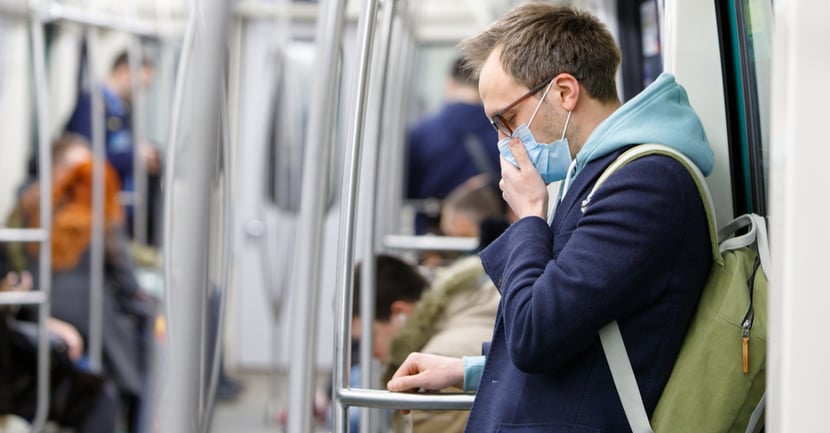
It's not a matter of if, but when. That's what Federal authorities finally said yesterday regarding the likelihood of the coronavirus spreading across the United States.
Infectious disease experts are now calling on businesses, schools, and communities to brace themselves for what they see as the inevitable outbreak of the coronavirus across the country.
"The disruption to everyday life might be severe," said Dr. Nancy Messonnier, Director of the National Center for Immunization and Respiratory Diseases at the Centers for Disease Control and Prevention (CDC).
Strategies to contain the virus on our shores, now officially named Covid-19, have thus far been based on isolating those who have contracted the virus, as well as quarantining those who may have been exposed to those individuals.
Authorities now admit that as the virus becomes more widespread, containment strategies will likely expand to the closing of schools, the canceling of mass gatherings, and the implementation of widespread telework for employees.
With financial markets across the world tanking and President Trump now scheduled to address the nation tonight, it now appears as if the threat of a global pandemic can no longer be ignored nor minimized by those who have thus far claimed that talk of a pandemic was nothing more than fear-mongering by the media.
Is Covid-19 Really a Pandemic?
Many still point to the official "pandemic" declaration of the 2009 outbreak of H1N1, more commonly known as the swine flu, as the cause of unnecessary panic. Critics argue that the declaration overwhelmed emergency rooms and caused governments to overreact by overspending on antiviral medications, not to mention implementing other extreme measures they later regretted.
Egypt, for example, slaughtered hundreds of thousands of pigs in a misguided attempt to combat the swine flu, creating an even greater social, environmental and political problem for them. (Despite its name, swine flu was not spread by pigs.)
In fairness to Egypt and other countries around the world, H1N1 did infect a massive amount of people - over a billion people in the two year span of 2009-2010 alone. It was also the first time a new flu virus had emerged in four decades.
By all measures, H1N1 met the definition of a pandemic, which is defined as "diseases which, over time, spread throughout the world". Nevertheless, a formal declaration as a pandemic by the World Health Organization (WHO) is another thing altogether, as it triggers a number of costly and mandatory precautionary measures by countries around the world.
This is most likely the reason why the WHO has thus far been reluctant to issue a formal declaration now. After all, Covid-19 has already met the technical definition of a pandemic - it's in at least 25 other countries beyond mainland China, including Egypt, Canada, and the United States.
Is This New Coronavirus Extremely Dangerous or Even Deadly?
Although the infection caused by the 2009/2010 swine flu pandemic could be severe, it was not nearly as deadly as people had initially feared. In hindsight, the real question world leaders should have been asking before initiating draconian measures was if the outbreak was a DEADLY pandemic.
This is the very same question world leaders need to be asking themselves right now.
We encourage you to download our free telecommuting guide, which offers templates and sample language you can use to form your own policy.
So how dangerous and deadly is Covid-19? According to figures released yesterday by the WHO, over 79,311 Covid-19 cases have been recorded in China, including 2,595 deaths. Outside of China, there are 2,069 confirmed cases across 29 countries, including 23 deaths.
While these numbers sound scary and include a death toll surpassing that of the Severe Acute Respiratory Syndrome (SARS) epidemic of 2002/2003, at present, this year's flu presents a greater danger to the citizens of the United States than Covid-19.
This doesn't mean that things can't change. The new coronavirus is more contagious and associated with a greater severity of symptoms than influenza.
The answer to the question of severity essentially comes down to two factors; how easily does the disease spread and how severe is the virus? Vox recently published an excellent article on this, which we encourage everyone to read.
As the Vox article states, we are learning more by the day, but nothing thus far is certain. It's unclear if we are dealing with something like the Measles, one of the most contagious virus known to man, or Ebola, which is far less contagious but much more deadly.
What Employers Should Do Now About Coronavirus / Covid-19
Focus on Prevention
Covid-19 is just one of many types of viruses and influenzas impacting humans - and it's the responsibility of every employer to protect employees from these and other illnesses in the workplace.
Taking even small precautions could save an organization countless hours of lost productivity – and, more importantly – could save lives.
Employers should protect against this latest coronavirus much like they protect against the flu:
- Offer on-site flu shots
- Promote the use of hand sanitizers around the workplace
- Educate employees on prevention methods.
According to the CDC, individuals should take the following precautions to avoid person-to-person spreading of any coronavirus:
- Avoid touching eyes, nose, or mouth with unwashed hands.
- Avoid contact with those who are sick.
- Wash hands often and thoroughly with soap and water.
Know the Symptoms
Common coronaviruses typically cause mild to moderate upper-respiratory tract illnesses, and those affected exhibit cold-like symptoms. The most common symptoms include:
- Headache
- Cough
- Fever
- Sore throat
- Runny nose
Some cases of coronavirus, like Covid-19, can be more severe, with infected individuals experiencing more serious lower-respiratory tract illnesses like bronchitis and pneumonia. For the elderly, infants and those with weakened immune systems, a coronavirus can be deadly.
A recent article by Business Insider provided a day-by-day breakdown of Covid-19 symptoms. 99% of patients first develop a high temperature, and half experience fatigue and a dry cough. Another third also have difficulty breathing and report muscle pain.
If employees exhibit any of these symptoms, most especially if they recently traveled to a country experiencing a coronavirus outbreak, they should call their doctors immediately. Doctors typically request initial phone calls, rather than visits, to properly prepare for a coronavirus patient.
Avoid Potential Discrimination Lawsuits
As with any workplace policy, employers should be wary of inadvertent discrimination when it comes to a coronavirus prevention policy (e.g., ordering employees to stay home when they seem sick or are of Asian ethnicity). Just because someone recently traveled to Shanghai and coughed in the breakroom doesn't mean an employer can send them home.
We encourage you to download our free telecommuting guide, which offers templates and sample language you can use to form your own policy.
As a recent article in the Society for Human Resource Management points out, employers who restrict workers who've recently traveled to China from returning to work might be vulnerable to ADA and Title VII claims. Even if frivolous, these actions can anger workers who think an employer overreacted.
To be safe, employers need to make sure that they apply equal enforcement to whatever policy they put in place, regardless of race or ethnicity. They should also be extra diligent to avoid asking illegal health-related questions, which can introduce a host of legal concerns, including HIPAA violations.
"Sometimes disease epidemics bring out the worst in us. You should never make special arrangements or single people out based on their nationality or their race," said Lawrence Gostin, Director of the O'Neill Institute for National and Global Health Law at Georgetown University.
For more on the possible legal ramifications impacting employers, we encourage you to read this recent article published by Proskauer, one of the nation's leading law firms specializing in labor and employment law.
In Closing
At present, there exists no known vaccine for the human-contracted coronavirus Covid-19, making precaution that much more critical. And while drug maker Modena Inc. has shipped the first batch of a test vaccine to the U.S. for testing, a clinical trial won't start until April.
Going from vaccine design to testing in 3 months would be a world's record. "Nothing has ever gone that fast," said Dr. Anthony Fauci, the Director of the National Institute of Allergy and Infectious Diseases. One can only hope that this speed to market does not comprise the efficacy of the cure.
In the meantime, companies must begin to think, in earnest, about how to reduce the risk to their workforce. Employers need to be diligent about addressing illness prevention in the workplace. They should consider limiting business travel to areas of concern, and they shouldn't hesitate to encourage workers to take a sick day or work from home if warranted.
It would also be very wise for employers to draft a telecommuting policy if they haven't done so already. While there are benefits and pitfalls to telecommuting, the practice is growing in popularity across virtually every company.
To assist you, we encourage you to download our free telecommuting guide, which offers templates and sample language you can use to form your own policy. And feel free to give us a call if you'd like to discuss things further.

















